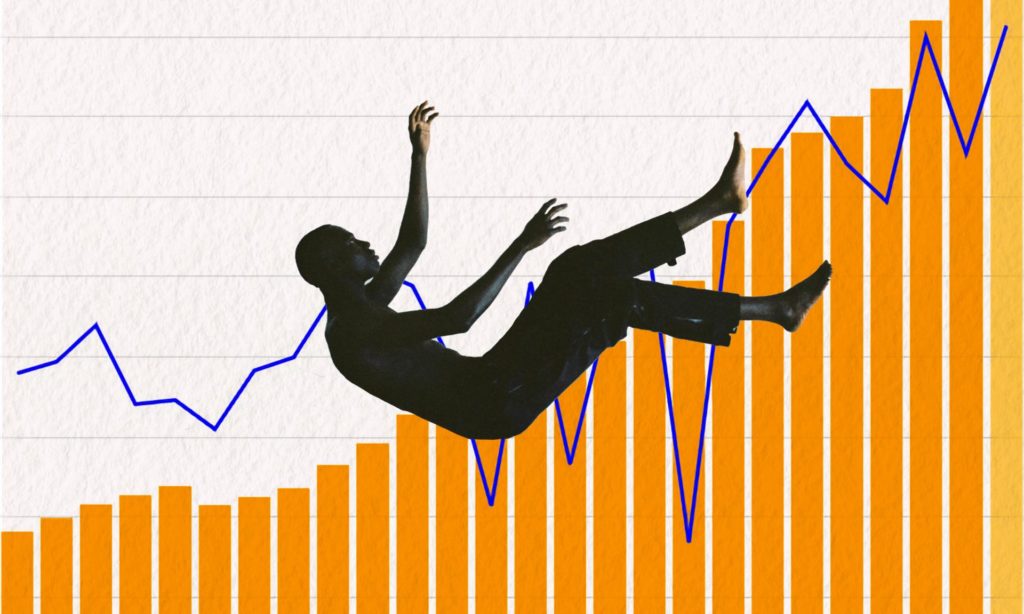Read this article in Italian (Leggi questo articolo in italiano) →
GDP is not a suitable measurement for happiness or welfare. It sucks. Assessing the economy using GDP is destroying our planet. The global community and the United Nation’s sustainable development solutions network (SDSN) need to find other suitable alternatives.
Since 2011, the SDSN, an initiative operating under the auspices of the United Nations, has been publishing a yearly report on how happy the world is. Embarking upon this fundamentally subjective and unquantifiable quest is no easy task and although the SDSN has significantly improved its methods to measure happiness throughout the years, it still has a long way to go before becoming perfect. This year the report used a host of different criteria to grade the happiness of a nation, these included: gross domestic product per capita (GDP), social support, healthy life expectancy, freedom to make your own life choices, generosity of the general population and perceptions of internal and external corruption levels.
Amongst the six variables that the report uses to compute happiness, Gross Domestic Product per capita (GDP) stands out. As the United States’ disappointing 17th rank in the report so bluntly demonstrates, happiness is more than smiles and high-yielding bonds. Owning more guns, having more money in your bank account or rallying around a flag will not, necessarily, bring one happiness. Who knew…
Hmm, but isn’t an ever-growing and flourishing economy quintessential to our happiness and wellbeing? Well, it’s complicated, let me explain.
To put it in plain language, Growth Domestic Product or GDP simply refers to the amount of stuff a country produces, this includes consumer spendings, money businesses invest and the government’s expenses. In capitalist thinking, GDP is the single most important indicator to capture economic activity. Unfortunately, the concept falls short of providing a suitable measurement for people’s wellbeing, mental health and prosperity.
Being a happy country and having an unusually high GDP figure are oxymorons
The economy must come to a balance with the living world in a safe and equitable way. We have been told for so many years that GDP growth is a proxy for human well-being: “We need to grow the economy to improve people’s lives”, you probably heard every other politician and their grandmother say. Now brace yourselves, it turns out this is an utter lie. GDP was never designed to measure human well-being, it was invented to measure the welfare of capitalism and the fact that we have all come to consider GDP growth as an appraisal of welfare of humans rather than the welfare of capital is an astonishing ideological coup on the part of capitalism.
In the real world, high GDP numbers don’t translate to prosperity, but to over-consumerism, stark inequality, the destruction of our environment and thus a lower quality of life. It’s easy to see why being a happy country and having an unusually high GDP figure are oxymorons.
GDP signifies the rate at which we run our death cult, oh I mean “economy”
When people think of capitalism they tend to think of businesses, markets, trade and so forth, but this isn’t quite correct. The aforementioned has been around for thousands of years whereas capitalism is only about 500 years old. What makes capitalism distinctive, however, is that it is organised around and dependent on perpetual growth, ever increasing levels of extraction and production.
But the language of growth sounds so compelling, it sounds so natural and so good, why should anyone be against it.
GDP does not only yield growth, but also projects the rate and speed in which we dig our own graves
Most economists would suggest that the economy and GDP – yes, they mean capitalism – needs to grow at a “healthy” rate of about 3% a year. Although this may seem like a small number, you have to remember that this is an exponential growth. 3% of annual growth means doubling the global economy every 20 years, throughout a single human life, this rate will multiply by a factor of 10. This wouldn’t be a problem if GDP growth was plucked out of thin air, but it is not, it is very tightly coupled to resources and energies available on our planet.
Oddly enough, the more we grow the economy, the more energy the economy requires and the more difficult it will become to roll out sufficient renewable energy to capacitate to meet the demand. GDP does not only yield growth, but also projects the rate and speed in which we dig our own graves. To be proud of higher GDP numbers is to celebrate a death-cult we call an economy and using it as a measurement for happiness is just plain wrong.
Moving beyond GDP
As the report demonstrates, we know that it is possible to have a very high level of happiness and prosperity with low levels of GDP. Let’s take the USA as an example. The country has a GDP capita of about 50,000 dollars per year, making it one of the richest in the world. Costa Rica on the other hand has 80% less GDP per capita compared to the United States, but yet it possesses a longer lifespan, higher happiness indicators and many better social benchmarks in different parts of the society. How do they do it you ask?
Simple, by focusing the economy on primarily human needs and ensuring that people have access to universal healthcare, education and social security. That’s what is needed for human flourishing.
GDP must be abandoned not only as an objective for welfare, but also as an evaluation of our economy. If a country wants to improve education, healthcare or wages, they should not have to worry about the effects it may have on GDP. Focus must be put on the topic at hand directly instead of magically expecting everything to get better simply by increasing GDP figures.
Decommoditise the parts of the economy that are needed for human wellbeing.
In his book Prosperity Without Growth, Tim Jackson identifies services such as health and education as relying more on people and less on resources and therefore crucial to a happier and an environmentally sustainable future.
In a degrowth scenario, as portrayed in the Doughnut Economical Model, we will be scaling down key parts of the economy, and we can have an honest conversation about what those are, that are ecologically destructive and often absolutely unnecessary to human needs. For example, advertising, gun and private jet production and so on.
Unemployment rates will rise, but we won’t let be an issue
As we go about this, there will be less labour required in the economy and, naturally, unemployment rates will rise. Normally, this would be a disaster, but we won’t let it. We can shorten the working week and redistribute existing labour more evenly so that everyone has access to the livelihoods they need in order to lead flourishing lives. This, of course, will go along with the access to the leisure activities people need to engage in caring activities, building better relations with their communities, becoming politically involved and so on.
Additionally, a universal basic income would organically ensure that all workers in declining industries are supported, even if that has to mean planting trees or doing absolutely nothing. Remember, there is no scarcity of income, there is inequality. Of course, it is obviously not the case that we can all just stay at home. Material goods must be produced unless we are to revert back to hunter-gatherer lifestyles. But ultimately, by reducing inequity we can take the pressure of the need to grow the economy and instead focus on us, on our education, our ambitions, our mental health.
Bhutan knows better: The Gross National Happiness (GNH) index could present a suitable alternative.
The very idea of measuring happiness to help guide public policy was proposed by Bhutan. Through a United Nations General Assembly resolution in July 2011, the country encouraged everyone ” to give more importance to happiness and well-being in determining how to achieve and measure social and economic development”. The country places an incredibly high value on happiness and wellbeing.
The Gross National Happiness, an alternative to GDP, is a term coined by the Fourth King of Bhutan, Jigme Wangchuck, in the 1970s. The concept implies that sustainable development should take a holistic approach towards notions of progress and give equal importance to non-economic aspects of wellbeing.
The concept of GNH has often been explained by its four pillars: good governance, sustainable socio-economic development, cultural preservation, and environmental conservation. The GNH Index is a single number index developed from 33 indicators categorized under nine domains. It’s also remarkably thorough, containing 148 questions, with lengthy sub-questions. GNH could potentially offer some strengths that GDP lacks.
Bottom line
In order to put people and their welfare first, we have to know what matters to them, perhaps it is time for the United Nations’ Sustainable Development Solutions Network (SDSN) to find a suitable alternative to replace GDP.
This article aims to highlight the shortcomings of GDP regarding human welfare. It does not cover all the issues relating to the subject, such as how it counts tragedies as economic bonuses, or the fact that it ignores how money is divided up.




















